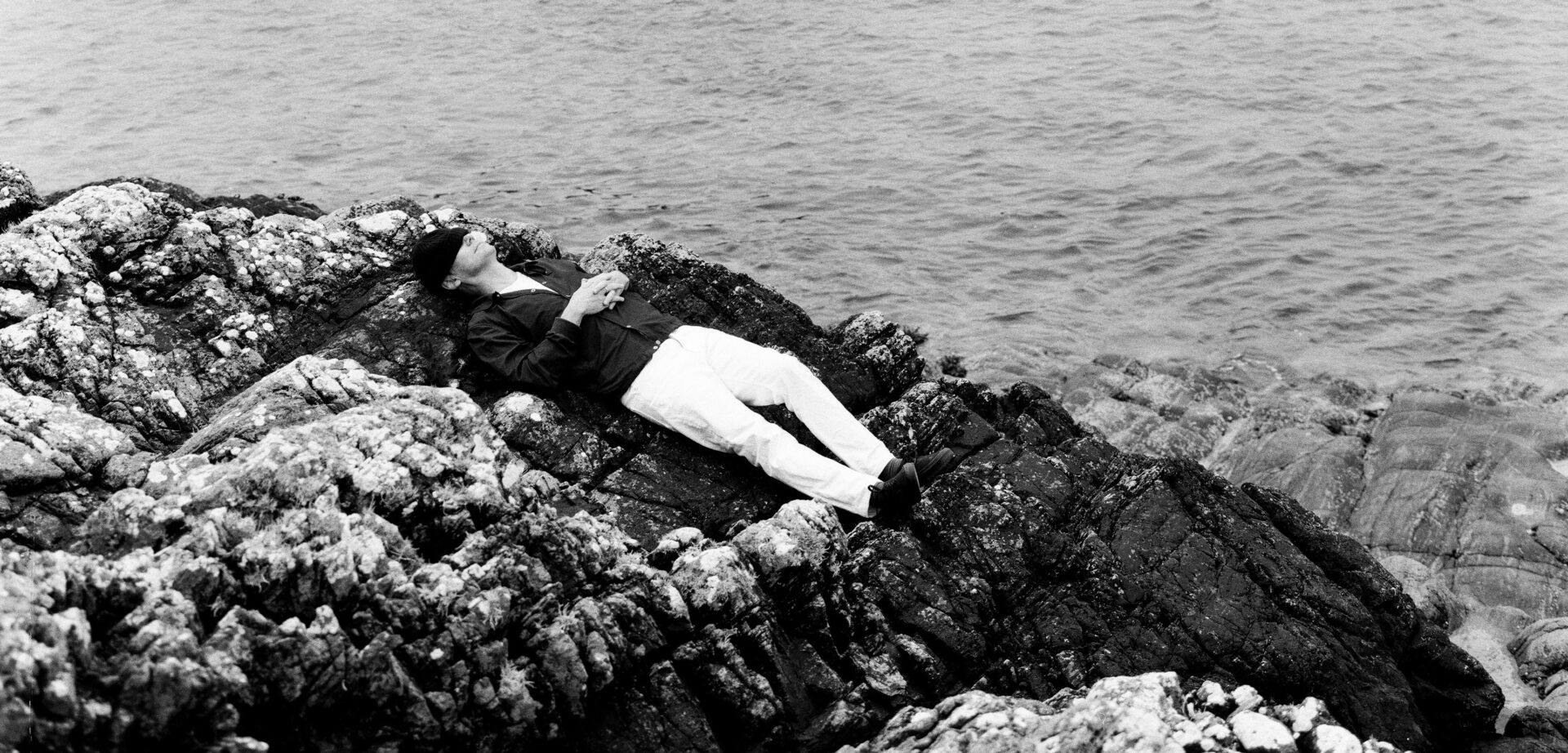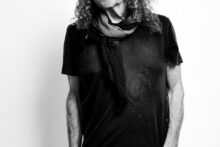When I ask Roddy Woomble what he misses about living in a city, he’s quick to reply that he’s “in cities all the time”. He might be a resident of Iona, a small (three miles by one mile, population: 120) island-off-an-island in the Hebrides, but his duties as frontman of Scots indie rock perennials Idlewild give balance to the life of isolation he enjoys there.
The group are about to release an eponymous tenth album, their first in six years, and he will soon be touring and in that world of cities and people and everything. “The new record’s very much what Idlewild fans have probably wanted for quite a while,” he smiles, “referencing ourselves a wee bit: 100 Broken Windows and The Remote Part, those records. I don’t think we were ready to make a record like this 10 years ago [after reforming following a six-year hiatus]. Creatively, we needed to explore different ways of writing together before we could return to this sound and think, ‘This is good’.”
It’s a little like the cycle he’s seen followed by friends who were born and raised on Iona. “They move to the city and study and go out into the world, as they should. But quite often they move back to raise their families. They went off in search of something, and discovered it was there waiting for them at home.”
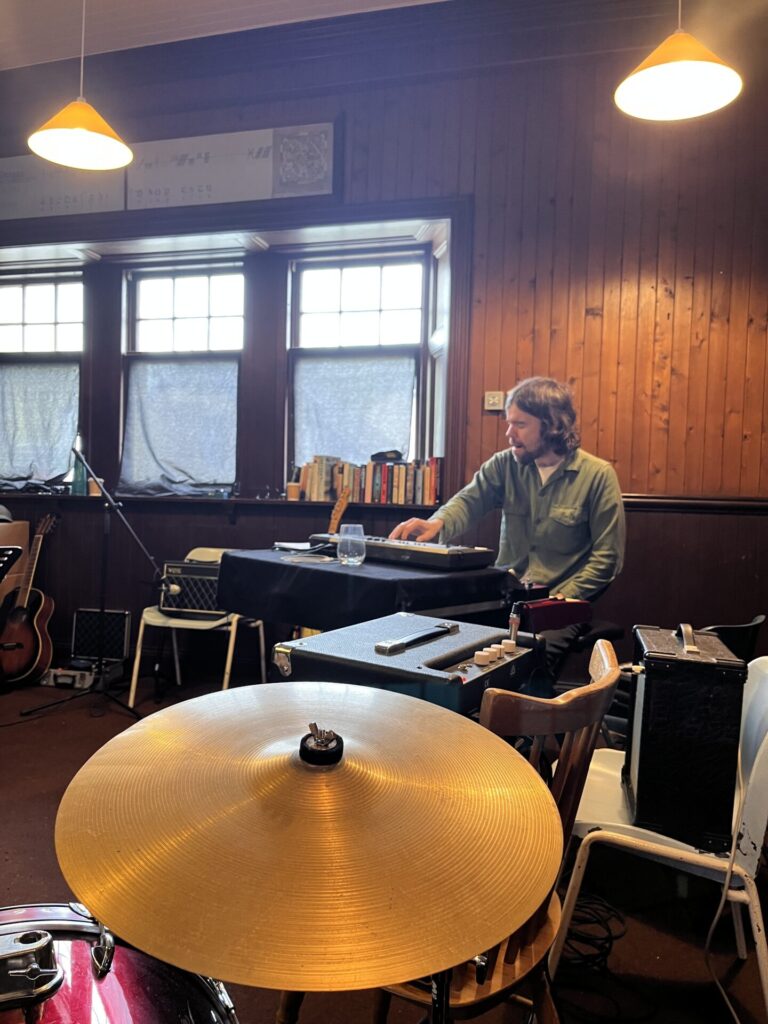
Iona is remote – it takes a while to get there
Iona is an island off an island. There are approximately 900 offshore islands in Scotland and about ten percent of them are populated, so there are lots of wee islands off islands, and they always contain some extra bit of magic than a normal island. To get to Iona, you’ve got to drive to Oban, a couple hours through beautiful countryside from Glasgow or Edinburgh. Then a beautiful hour-and-45-minute ferry-ride from Oban to Craignure, on the Isle of Mull. Then you drive an hour to the west of Mull, and another 10-minute ferry to Iona. So when you arrive, you feel like you’ve left the world behind, in stages.
It’s a spiritual place
In summer, according to our guide book, 300,000 tourists come through; it’s a spiritual site. St Columba was exiled from Ireland and he and 12 monks landed in Iona in 563 to set up a monastery and introduce Christianity to the Picts. After he died, the area became synonymous with spirituality. Iona Abbey was built in the 12th century, on the site of his monastery. That’s why all the cruise ships come to Iona. Also, it’s on a ley-line, and it’s an ancient burial place; the soil is seen as spiritual. 48 Scottish kings are buried there. It’s got an energy that draws people in, like John Keats and Allen Ginsberg. They call it the golden isle, because it’s so touristy and arable.
I sound like the tourist board, don’t I? I sometimes do guided tours. My knowledge of history is fairlypoor, but people just want to chat with someone who lives there. I’m not religious myself. But I am interested in the people who are attracted to the spiritual thing. When he was younger, my son shouted, ‘Dad, there’s someone walking up the street with a Jesus-killed-himself machine!’ I looked out and there was someone pulling a full-size crucifix up the road. ‘Jesus-killed-himself machine’ would be a great name for a band.
You get shamans coming to meditate on top of the hills, for this energy you get there. And you have much more Orthodox Christians coming, to go to services and the retreats. But I’m not involved in any of that. I just live here. What I get from Iona is the sense of space. Most of the island is uninhabited, and you can spend your day and not see anyone.
Small, remote towns are great for budding artists
I was born in Ayrshire on the west coast of Scotland. When I was five, we moved, through my father’s work, to France, then Stoke-on-Trent, then back to France, then Dundee, and then America, for my teenage years, which is where I got into punk rock. Then I went to university in Edinburgh. Quite a transient childhood – ten different schools. It made me interested in art, and in being on my own and enjoying my own company, which stands you in good stead when you’re on tour.
Small towns are a great place to be a budding artist, because you have this desire to leave. My connection to the Highlands and islands dates back to when I was young. We always went there in our campervan as a kid, and as a teenager I would go youth-hosteling up in the islands. Idlewild would write a lot of our albums up in the islands; we did a lot of our best creative work there.
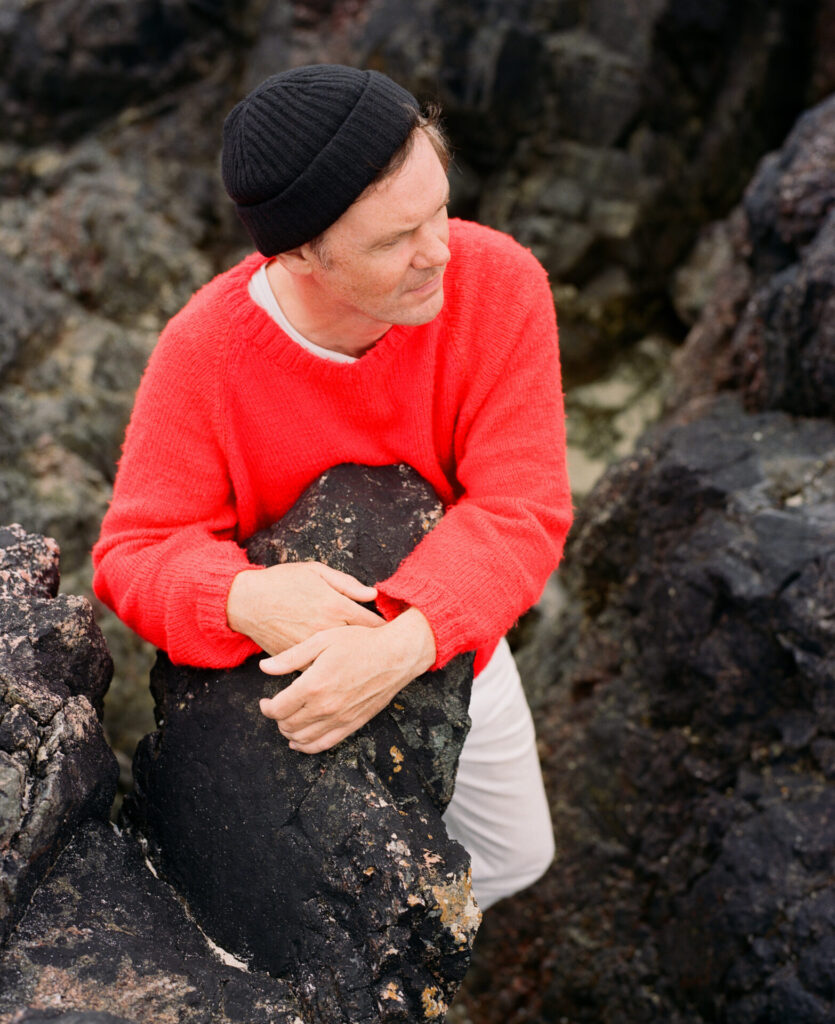
I’d always wanted to move to the Highlands and islands
When we first started making money from Idlewild, Colin [Newton, drums] and Rod [Jones, guitar] bought wee one-bedroom flats in Edinburgh. I tried to buy an old church in Glenmoriston, but it wasn’t mortgageable. The following year, I tried to buy an old croft up in Sutherland, really in the far north of Scotland. But it was almost uninhabitable, so I put those ideas aside and lived in Glasgow and Edinburgh for a bit, then moved to London for three years, and New York for a year. I was in a rock band, I didn’t have a family; I was operating on my own, doing my own thing. I loved wandering around cities, and cinemas, and going to see bands. But I realised the best place to live a ‘normal’ life, when I had children, was somewhere remote and disconnected.
When my son was born, 16 years ago, my partner and I rented a house in Mull. We didn’t have any outdoor space in our flat in Glasgow, so this was amazing. It was around the time that Idlewild took a break, so I was off the conveyor belt of having to be available for tours. I really could just do my own thing. And it was cheap living up there. We grew vegetables, and caught fish, and for several years it was really kind of idyllic.
We moved to Iona a decade ago. It’s difficult to find somewhere to live on Iona, because there’s a holiday home culture here. We rented a house and ran it as a B&B to cover some of the rent, until we found a smaller house we could live in. Housing has become unaffordable for local people on local wages to afford. I’m a working musician, so like anyone else I’m just trying to be resourceful and pay my rent.
The empty space is brilliant for creativity
It’s really brilliant for being creative, for the sense of space, of being surrounded by emptiness, and the thoughts that can drift out from that emptiness. It has really improved my productivity – there are no distractions. I like reading, writing, walking and listening to music. I like having bonfires. I have a few friends. I had a boat when I first moved to Mull, bought for 800 quid from on eBay. It sank twice – once when I was in it, and once when I was watching it from a window, slowly sinking into the water. Now I just go on other people’s boats.
There are new places opening all over Iona, food places and coffee shops and things you didn’t really get when I used to go up to the islands. When I was younger, it was just tartan carpets, that vibe – a tartanised version of Scotland. You could eat fish and chips, or scones and pancakes. Now there’s lots of delicious things to eat and drink. There’s only one shop. But everyone’s got fiber optic broadband, everyone’s got amazing computers. Nowhere is really remote anymore.
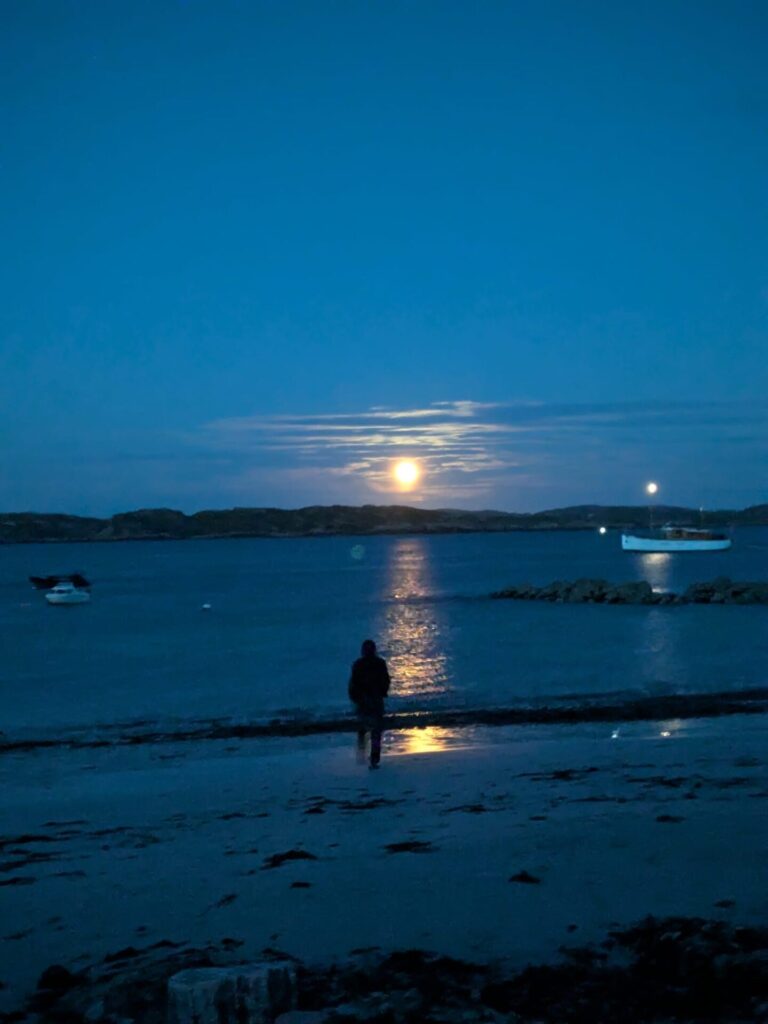
It’s a great place to raise kids
It’s a really good place to be young. A teenager? I’m not so sure. I think to be a young kid in the Hebrides is just amazing. I’m projecting all this is from an idealistic adult’s point of view, of course. I had a very different childhood, moving around a lot. It’d be interesting to speak to my son about it in ten years or so, once he’s had more time to reflect on his island childhood. I wouldn’t have liked to have moved to Mull when I was 19, though. No way. I wanted to experience things.
It’s a magnet for people. Famous people, too – Robert Plant was here last year, and Kate Moss, and Kyle MacLachlan. Like, ‘I am pulled towards Iona, I’m going to find some artistic epiphany here, like other people have over the centuries’. I don’t know if I believe in that. But at the same time, I don’t not believe it.
Am I the most famous person living on Iona?
I don’t consider myself to be famous. I’m known in Scottish music, but there’s not that many fans of Scottish music that come to Iona. Certainly, on the guided tours, no-one’s got a clue. Apart from one guy, once. It took a wee while, and afterwards, he asked, ‘Why are you doing this?’ And I said, What do you mean? ‘You’re the singer from Idlewild. Why are you doing tours of the nunnery?’ I don’t know if he was trying to make me feel bad. I was like, ‘Well, I wasn’t doing anything else today.’
I used to wonder how anyone could live in a small town. I’m not saying that I’ll be here forever. Maybe I’ll move back to the city when I’m older. But for the past 16 years, it’s been a really important for me to be here.

